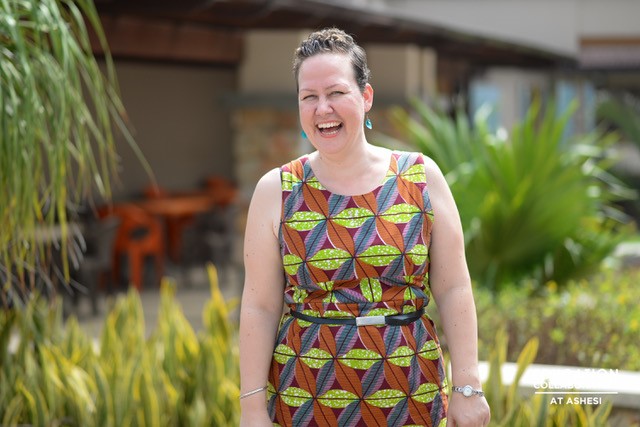After posting on my experiences of breastfeeding in Ghana, I got many comments. Most of them were long and very informative, so I thought I’d share with you some of the issues that came up. Here is Breastfeeding in Ghana and elsewhere, Part 2.
Nsoromma described breastfeeding as something very natural when growing up in a Ghanaian community in London:
As common as drinking water, women would whip out their breasts and feed a baby that needed feeding. There was no shame and it was not sexualised. When I grew up slightly and saw more White English families I realised it was Not The Done Thing. I remember being surprised to hear quite openly negative remarks about how disgusting it was for women to breastfeed…particularly outside of the home! This view pervades British society to such an extent that in my current job I often hear that raising breastfeeding rates (initiation, through to 6 months) is a massive public health priority.
So going back to Ghanaian women (at least in th UK), I think its a misguided case of copying what the ‘West’ do.
I think Nsoromma’s story is a good illustration of that attitudes vary and that they matter. Maybe sexualizing babies’ food/ breastfeeding has much more to do with the issue than I first thought…
Fiona Leonard stressed that pumping and bottle-feeding is possible, but that your workplace needs to be supportive.
Going back to work certainly makes it hard. I went back to work at four months and was exclusively breast feeding which meant I had to express, including at work. To be able to do that you need a very accommodating workplace. It’s not impossible though. I continued breast feeding (not exclusively) through to twelve months.
I can imagine expressing/pumping daily is a chore! I invested in a simple but high-end pump and have used it a total of three times…many parts to wash, pumping for 10-15 minutes (now I know why baby is sweating while eating) and I have been lucky to be able to stay at home until now which means I just bring baby with me instead of the pump!
My Intercultural Communication’s professor Pam wrote a long comment that I am too proud to cut down in any way. She also shared a link to a historic so-called usenet group FAQ that she had put together on the topic back in 1996! Still worth a read, though!
This is a fascinating article not only on cross-cultural attitudes about breastfeeding but also about how these attitudes are changing (and not always in good ways). Here in the US when I was breastfeeding nearly 20 years ago, I would discreetly breastfeed in public (restaurants, benches), and although many people found it odd, few if any people criticized me for it. However, now, I cannot remember the last time I saw a breastfeeding mother in public. And apparently there has been much controversy about it: see this article: http://abcnews.go.com/Health/kasey-kahne-target-nurse-ins-public-breast-feeding/story.
Where I found much more dissension was in breastfeeding my child after he was a year old. Very few American mothers continue to breastfeed older infants and toddlers and tend to wean them rather young. I continued until my son naturally weaned himself, which happened about 18-20 months. This was back in the very early days of the internet (before the WorldWide Web and I was a participant in a great support group called misc.kids via usenet groups. In fact, I just located the archives of the FAQ I compiled on this topic at http://www.faqs.org/faqs/misc-kids/breastfeeding/toddlers/. Enjoy!
I find it interesting that when breastfeeding in public is “breaking the norm” – actually nothing much happens if one does!
Maya Mame suggested that the comments I have gotten when breastfeeding in Ghana are more class related than anything else:
I was going to raise a point, but realised mentioned it later in your piece. I doubt the surprise at you breastfeeding has to do with your colour, I think it is mainly something that you don’t see “affluent” people doing in Ghana. (I too received many “you’ve done well” comments and there’s nothing white about me! 
The same commenter also shared some particulars for Ghanaian mothers that makes breastfeeding more difficult that it need to be:
In addition to that, as you and Fiona mentioned, going back to work (and here, let’s remember, as I was harshly informed, there are extremely limited part time jobs in Ghana, so going back to work means full time, with approximately 45 minutes journey in and out) means most women will be away from home for 10-12 hours a day. It is practically impossible to pump enough to feed a baby for those hours.
In addition, what I noticed we lack in Ghana is advice on breastfeeding and stimulating milk production. Unless you get traditional tips from aunties (eat groundnuts with their skin on, or drink palm nut soup, there’s not much advice or places to go to for advice if your milk production were to slow down. I, who’ve somehow become the breast milk guru among friends, managed to help two friend who would most likely have stopped completely, if not given the tips I learned at the Swedish child care centre.
It is so common that milk production slows down, whether due to lack of sleep, stress or change in diet, and it is sad that something that can easily be increased would completely end, because people don’t know where to get advice from. Looking at those around me, ALL the mothers I know had the intention to breastfeed, but sadly, probably more than half stopped by three months, due to slow production or work commitments.
When I read the comment, I thought of Amningshjälpen, a Swedish breastfeeding support organization, and how it might be much needed globally.
Swedish blogger Nina Ruthström saw similarities in the Ghanaian breastfeeding situation to attitudes prevailing in Sweden in the 1970-1980s. She also shared her personal feeling on breastfeeding in public.
I must say I was surprised at the interest my blog post on breastfeeding generated, but I am happy and grateful to have learned so much from my readers on the topic. Recently a reader of Nina’s blog , Sofia, suggested blogging is the womens’ forum of our time. I thought it was a bold and alluring statement. However, the discussion above seems to be the perfect illustration of its validity.






